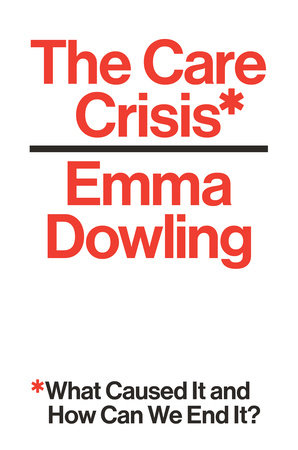The Care Crisis,What Caused It and How Can We End It?
Interesting book about care and what it means,
Care is conceived as all the supporting activities that take place to make, remake, maintain, contain and repair the world we live in and the physical, emotional and intellectual capacities required to do so.1 In this sense, care is at the heart of making and remaking the world. The propensity to care and the work of caring are the lifeblood of our social and economic system. Care is central to the reproduction of society and thus one of its bedrocks, part of a fundamental infrastructure which holds society together. Without care, life could not be sustained.
What happens to affective relations and caring activities when they are subsumed under market forces and turned into services that are sold? As ever more areas of social life and work are directly commercialised, the affective investments of care come into conflict with logics of measure, profitability, time constraints, cost reduction, standardisation, and economies of scale in multiple ways
However, instead of considering efficient ways to provide care, the political views surpass efficiency, a well known paradigm.
Valuing care means allocating resources, not taking them away. There is an urgent need to dismantle the apparatus that allows private wealth extraction from society’s care structures, so that any new funds made available for the public care infrastructures do not simply prop up profits. Care needs to be shielded from the volatilities of financial markets, not be drawn deeper into them. Therefore, the realms of care should not be available to high-risk forms of financial investment, including private equity and debt-based forms of financial engineering, where expectations of high returns on capital are upheld at the expense of quality of employment and quality of care. Nor should public services and the care sector be exposed to free trade agreements that undermine labour, consumer and environmental protections.9 This is a pressing issue in the wake of Britain’s departure from the European Union.
Instead of considering public funding as the main option, and access according to need and not to willingness to pay, she proposes to dismantle private services...










